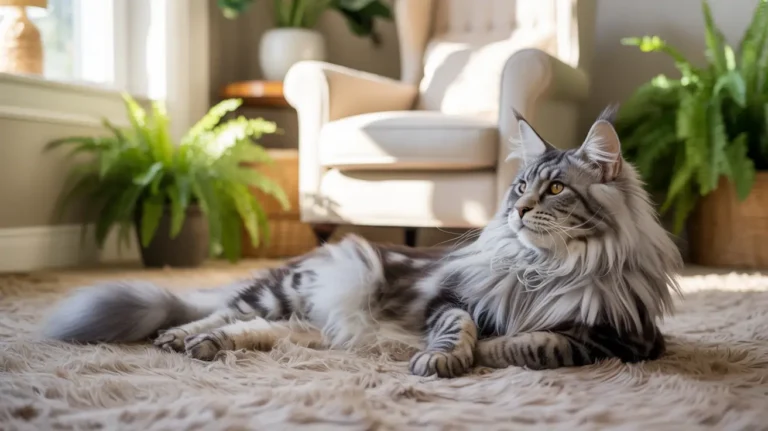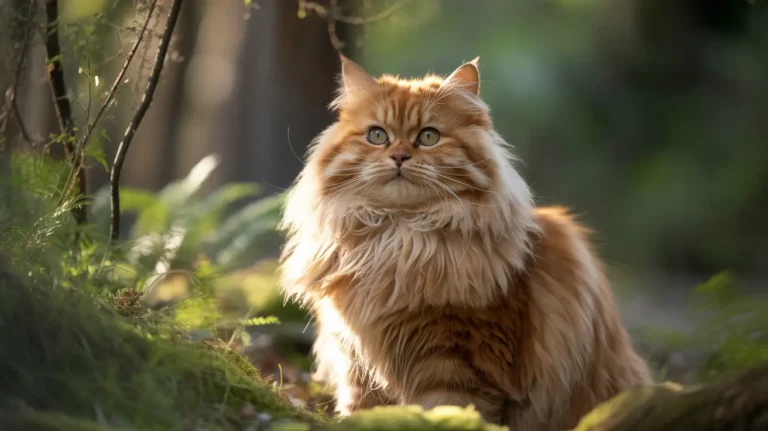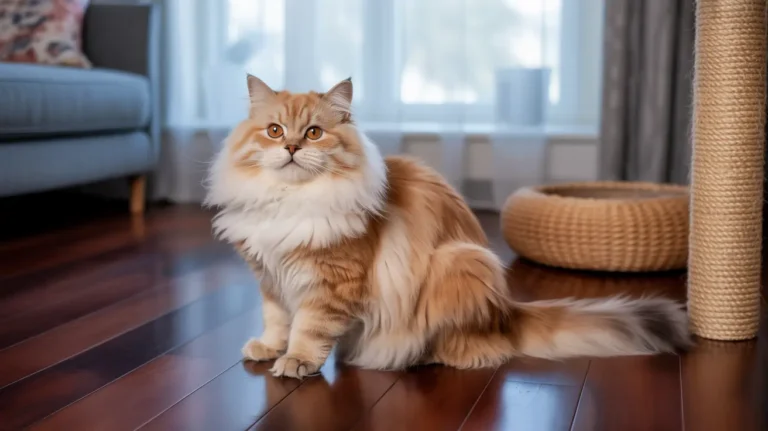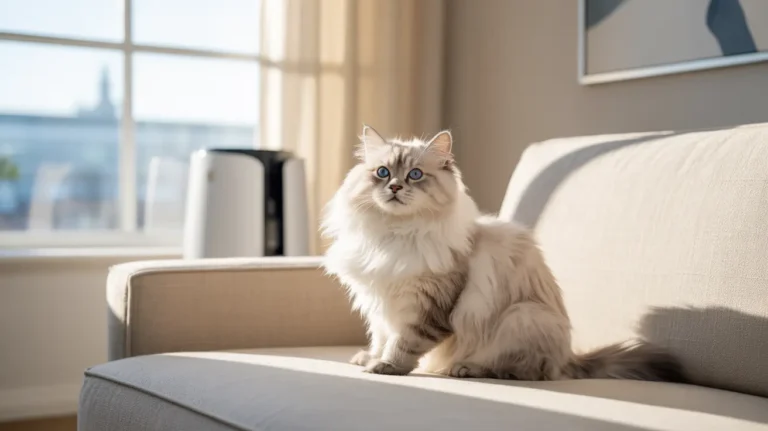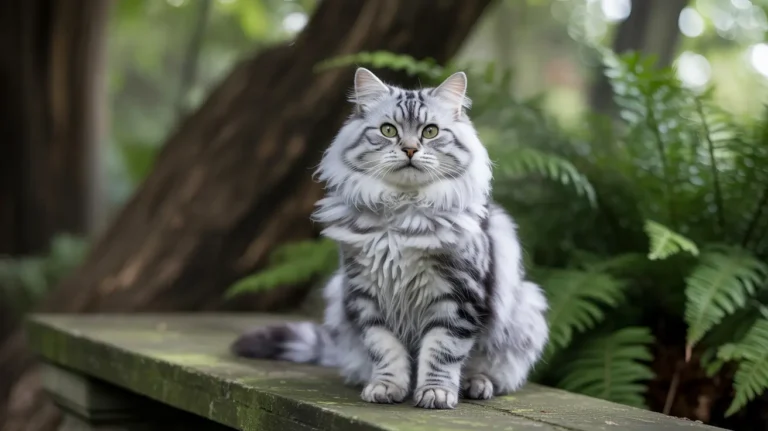Top 8 Health Issues in Maine Coon Cats and How to Avoid
Maine Coons are among the most beloved cat breeds, known for their majestic appearance and gentle temperament. Their large size and sociable nature make them ideal companions for many households.
However, their unique genetics and physical characteristics can predispose them to specific health issues. Understanding these potential concerns is crucial for current and prospective owners to ensure their feline friends lead healthy, fulfilling lives.
Understanding Maine Coon Genetics
Purebred cats like Maine Coons often have a limited gene pool, which can increase the likelihood of hereditary conditions. Being aware of a cat’s genetic background is essential, as it can reveal predispositions to certain diseases.
Responsible breeders play a significant role by conducting genetic screenings to minimize the risk of passing on inherited ailments. For instance, genetic tests can identify mutations associated with conditions like Hypertrophic Cardiomyopathy (HCM) and Spinal Muscular Atrophy (SMA), allowing breeders to make informed decisions.
Common Health Issues in Maine Coon Cats
Here’s a list of the most common health issues in Maine Coon cats that owners should be aware of. Recognizing these conditions early can help improve your cat’s quality of life:
Hypertrophic Cardiomyopathy (HCM)
Hypertrophic Cardiomyopathy (HCM) is a serious heart condition where the walls of the heart, mainly the left ventricle, become abnormally thick. This thickening reduces the heart’s ability to pump blood efficiently.
It is especially common in Maine Coon cats and can lead to heart failure, fluid buildup in the lungs, and even sudden death if not diagnosed and managed in time.
Genetic Cause in Maine Coons
Maine Coons are genetically predisposed to HCM due to a specific mutation in the MYBPC3 gene, known as the A31P mutation. This mutation can be inherited if one or both parent cats are carriers.
Responsible breeders screen for this mutation to avoid producing affected kittens. DNA testing before breeding is the most effective way to prevent the spread of HCM in future generations of Maine Coons.
Common Symptoms to Watch For
Cats with HCM may show signs such as labored breathing, tiredness, reduced activity, or sudden fainting. In some cases, symptoms are subtle or absent until the disease progresses.
Sudden death can also occur in undiagnosed cases. Owners should be alert to any breathing difficulties, weakness, or behavioral changes and seek immediate veterinary advice if such signs appear.
Diagnosis and Management
Early detection is crucial to managing HCM. Vets often recommend regular heart screenings, especially echocardiograms, for Maine Coons starting from a young age.
While there is no permanent cure for HCM, medications like beta-blockers and diuretics can help control symptoms, support heart function, and improve the cat’s quality of life. Regular monitoring can extend lifespan and comfort.
Hip Dysplasia
Hip dysplasia is a developmental condition where the hip joint doesn’t fit properly into the socket, causing abnormal wear and tear. This misalignment leads to joint instability, pain, and eventually arthritis.
Maine Coons, being one of the largest domestic cat breeds, are more vulnerable due to the extra stress their weight puts on the hip joints during movement.
Why Maine Coons Are at Higher Risk
The large frame and heavy build of Maine Coons can make them prone to orthopedic issues, especially if they are genetically predisposed. Poor breeding practices and a lack of genetic screening increase the chances of passing on this condition.
Kittens may appear normal at first, but signs can develop as they grow and their joints bear more weight.
Symptoms and Early Warning Signs
Signs of hip dysplasia often start with subtle changes like limping, stiffness, or hesitance to jump or climb stairs. You might also notice decreased activity or discomfort when touched near the hindquarters. Early detection through veterinary exams and X-rays can help slow progression and reduce pain.
Prevention and Ongoing Care
Maintaining a healthy weight is crucial to avoid putting extra pressure on the hips. Joint supplements such as glucosamine and chondroitin may improve joint function. Orthopedic bedding, low-impact play, and ramps for climbing can enhance mobility.
Regular vet visits and gentle exercise routines can help manage this lifelong condition and maintain your cat’s quality of life.
Spinal Muscular Atrophy (SMA)
Spinal Muscular Atrophy (SMA) is a hereditary neurological disorder that affects the spinal cord’s motor neurons, which control muscle movement. As these neurons degenerate, affected cats experience progressive muscle weakness and loss of coordination.
Though not painful, SMA causes physical limitations that can greatly impact a cat’s mobility and quality of life over time.
How It Affects Maine Coon Kittens
SMA is an inherited condition seen primarily in Maine Coons due to a recessive gene mutation. Kittens that inherit the faulty gene from both parents start showing symptoms between 3 and 4 months of age.
Common signs include a wobbly gait, muscle tremors, and weakness in the hind legs. These kittens often develop a bunny-hop walk and may struggle with jumping or running.
Symptoms and Disease Progression
The disease typically stabilizes after a certain stage without becoming worse, but affected cats will always have reduced mobility. SMA does not cause pain, but the muscle wasting leads to poor coordination.
Despite their limitations, many affected cats can live comfortably with supportive care and a safe, accessible home environment.
Prevention Through Genetic Testing
There is currently no cure or treatment for SMA. However, it is entirely preventable through DNA testing. Responsible breeders test breeding cats to ensure they are not carriers of the SMA gene. By avoiding the mating of two carriers, the condition can be eliminated from future generations of Maine Coons.
Polycystic Kidney Disease (PKD)
PKD is a hereditary condition in which fluid-filled cysts form in the kidneys, gradually interfering with normal kidney function. Over time, these cysts grow and may lead to chronic kidney disease or kidney failure.
The condition is present from birth but may not show symptoms until the cat is older, typically around 7 years of age or later.
How It Affects Your Cat’s Health
As PKD progresses, kidney function declines. Cats may exhibit symptoms such as increased thirst, frequent urination, weight loss, and poor appetite.
Toxin buildup in the bloodstream can affect the cat’s energy, coat quality, and behavior. Early diagnosis through ultrasound or genetic testing can help manage the disease more effectively.
Managing PKD Effectively
Although there is no cure, supportive care can help slow disease progression. Special renal diets, increased hydration, and regular blood and urine tests are essential. Fluid therapy and medications may also be used in advanced cases. Early intervention improves comfort and longevity.
Prevention Through Screening
PKD is passed down genetically, so prevention lies in responsible breeding. Breeders should perform DNA or ultrasound screening on cats before breeding. By avoiding PKD-positive pairings, this disease can be greatly reduced in future Maine Coon generations.
Dental Disease
Dental problems like gingivitis, tartar buildup, and periodontal disease are common in cats and often go unnoticed. These conditions can lead to tooth loss, pain, and systemic infections affecting organs like the heart and kidneys.
Since Maine Coons are prone to hiding pain, regular oral care is essential to avoid long-term health risks.
Common Symptoms of Dental Disease
Early signs include bad breath, drooling, red or swollen gums, and difficulty chewing or eating. You may notice your cat dropping food, pawing at their mouth, or avoiding dry food. In more severe cases, infections can develop under the gums, leading to abscesses and tooth decay.
Preventive Dental Care
Start dental care early with regular brushing using cat-safe toothpaste. Dental treats, water additives, and special dental diets can help reduce plaque.
Annual vet dental checkups are vital for early detection and professional cleanings if needed. Preventive care is easier and cheaper than treating dental disease.
Long-Term Oral Health Tips
Keep a close eye on your Maine Coon’s eating habits and oral hygiene. If your cat shows signs of discomfort or stops eating, consult a vet immediately.
Routine care, including brushing and dental evaluations, will not only keep their teeth healthy but also support their overall wellness and longevity.
Obesity and Joint Stress
Maine Coons are naturally large cats, but their laid-back nature can lead to excessive weight gain if not carefully monitored. Unlike more active breeds, Maine Coons may prefer lounging, which increases the risk of obesity.
Excess weight puts extra strain on their joints and organs, increasing the risk of arthritis, diabetes, and heart problems.
Health Risks of Excess Weight
Obesity can severely impact your cat’s mobility, breathing, and quality of life. Fat buildup around vital organs makes it harder to breathe and move comfortably.
It also worsens joint conditions like hip dysplasia, making daily activities painful. Obese cats are also more prone to liver and urinary tract issues, requiring lifelong medical care.
Prevention Through Diet and Exercise
Preventing obesity starts with a controlled, portioned diet tailored to your cat’s size and age. Avoid free-feeding and limit treats.
Regular play using toys, feather wands, or laser pointers encourages movement and helps burn calories. Structured feeding schedules combined with active play prevent unnecessary weight gain.
Monitoring and Long-Term Care
Weigh your Maine Coon regularly and consult your vet about their body condition score (BCS). Sudden weight gain or loss may signal underlying issues.
Joint supplements and low-impact activities like climbing ramps or gentle play can protect their joints. Keeping your cat slim improves life expectancy and comfort.
Parasites and Infections
Maine Coons’ thick coats make ideal hiding spots for external parasites like fleas, ticks, and mites. Internally, they can be infected with worms such as roundworms, hookworms, or tapeworms.
These parasites can cause skin irritation, digestive distress, and even anemia if left untreated, especially in kittens or immunocompromised cats.
Warning Signs and Symptoms
Watch for symptoms like excessive scratching, hair loss, visible fleas, or worm segments in the litter box. Internally, parasites may cause vomiting, bloated belly, weight loss, or diarrhea. A dull coat, poor appetite, or dragging the rear end can also signal an infestation that needs veterinary attention.
Prevention and Routine Care
Use vet-approved parasite preventives like spot-on treatments or oral medications monthly. Regular grooming and combing helps detect fleas early. Keep indoor spaces clean and treat all pets in the household. Deworming schedules, especially for kittens, are crucial for long-term health and protection.
Environmental Hygiene and Vet Support
Keep bedding, litter boxes, and carpets clean to break the parasite life cycle. If your cat spends time outdoors, inspect them regularly. Your vet can recommend a year-round parasite prevention plan. Consistent care helps your Maine Coon avoid discomfort and serious health complications.
Skin & Coat Conditions
Maine Coons have long, luxurious fur that requires regular upkeep. Without proper grooming, they’re prone to matting, dandruff, and skin infections.
Their dense undercoat can trap moisture and dirt, leading to irritation or hot spots. Consistent coat care not only keeps them looking beautiful but also helps detect health issues early.
Causes of Skin Issues
Skin problems can stem from allergies, poor diet, parasites, or environmental factors like dry air or humidity. Food sensitivities may cause itching, scabs, or hair loss. Overbathing or harsh shampoos can strip natural oils. Parasites and fungal infections like ringworm can also impact skin and coat health significantly.
Grooming Best Practices
Brush your Maine Coon 2–3 times a week using a wide-toothed comb or slicker brush. Focus on high-friction areas like underarms and belly to prevent mats. Use cat-safe grooming products and avoid human shampoos. If skin irritation or dandruff appears, consult your vet for tailored care or medicated solutions.
When to See a Vet
Seek veterinary help if you notice redness, flaking, bald patches, or persistent scratching. Your vet may perform skin tests or suggest a hypoallergenic diet. Untreated skin issues can escalate into infections or cause constant discomfort. With regular care and early intervention, your Maine Coon can enjoy a shiny, healthy coat.
Preventive Healthcare Checklist
Proactive healthcare measures are crucial for detecting and preventing potential health issues in Maine Coons. A comprehensive preventive plan includes:
Symptoms You Should Never Ignore
Being vigilant about your Maine Coon’s health involves recognizing warning signs that warrant immediate veterinary attention:
Tips for Choosing a Healthy Maine Coon Kitten
Finding a healthy Maine Coon kitten starts with choosing the right breeder. Never buy from pet shops or backyard breeders who can’t show proper documentation. Reputable breeders prioritize the health and temperament of their cats.
Always request health clearances for conditions like Hypertrophic Cardiomyopathy (HCM), Spinal Muscular Atrophy (SMA), and Polycystic Kidney Disease (PKD). Ethical breeders will show test results and explain their breeding practices.
Observe the kitten’s behavior. Healthy kittens are curious, playful, and have clear eyes and a clean coat. Avoid kittens that appear overly shy, lethargic, sneeze frequently, or have discharge from the nose or eyes. Inspect the living environment too. It should be clean, odor-free, and free from overcrowding.
Kittens raised in poor conditions may carry infections or develop long-term behavioral issues. Lastly, read reviews and ask for references from past buyers. A trustworthy breeder will gladly connect you with others who’ve adopted from them.
Remember, starting with a healthy kitten is the best way to avoid heartbreak and high vet bills later.

